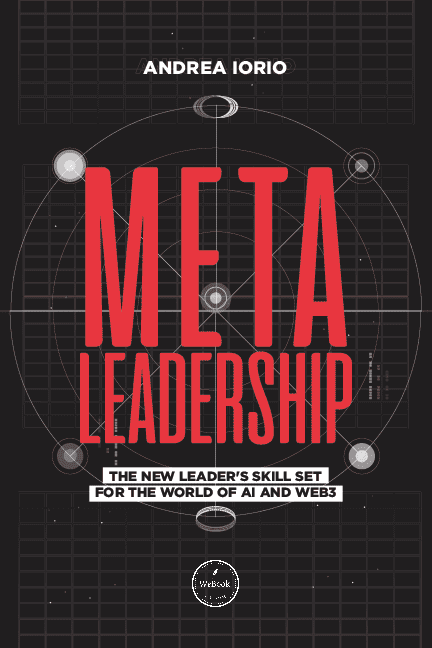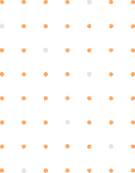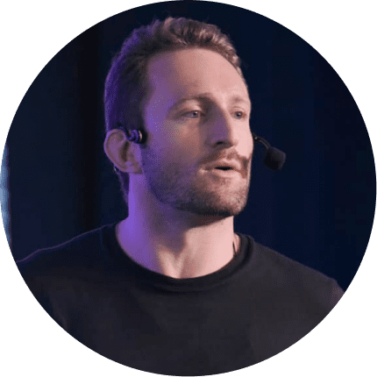Yuval Noah Harari, the great historian and author of Sapiens, already said: "Philosophers have been discussing issues like free will and the meaning of humanity for thousands of years, with zero impact. Today, these problems are suddenly becoming practical problems of engineering, and of politics".
During high school, back in Italy, I held philosophy as one of my favorite subjects. My professor, called Pino Draperi, was able to make this arcane subject surprisingly interesting. I was always looking forward to our philosophy class, and I was pretty good at it. The only problem? I basically never managed to find any practical application for what I was learning. I tried a couple of time to use it for discussions with friends, with no success (they were like: "What the hell, Andrea, we want to talk about the latest Inter Milan's soccer game, not about Schopenhauer's pioneering existentialism theories), neither I was able to find applications to other realms of life. But as I got into University, as I got into work, and as the world evolved into a Digital world, I felt like philosophy was helping me understand, or at least reflect upon, some of the implications of the world of AI and of Web3 - which we are going to discuss in this article.
Let's pretend for a moment that a Time machine was invented, and that is be able to take us back to Athens in Ancient Greece within the snap of a finger. You go back in time to more than 2000 years ago, and you're there, witnessing a speech by Socrates, standing in the audience side by side with his disciple Plato.
I'm sure you would be as fascinated as I would be to watch Socrates using his philosophical argument method called "maieutics", which is based on asking questions to find any flaw in the discourse of an intellectual adversary. Maieutic comes from maieutikos, the Greek word for "of midwifery." In one of Plato's Dialogues, Socrates applies maieutikos to his method of bringing forth new ideas by reasoning and dialogue; he thought the technique analogous to those a midwife uses in delivering a baby (Socrates' mother was a midwife). Asking a series of questions was considered by Socrates a method of “giving birth” to the truth, and a related word, maieutic, defined as “relating to or resembling the Socratic method of eliciting new ideas from another ''.
Socrates fundamentally used dialectics to discredit the claims of knowledge by others, and ended up revealing the ignorance of his interlocutors. The objective of Socrates through maieutics was to make us progress towards a more adequate understanding of topics such as morals and ethics.
But let's be honest: today, most of us - and modern society as a whole - would see these debates as a huge waste of time, wouldn't we?
The truth is that philosophy in general has always been seen as an abstract, intangible discipline that adds little value to the real world.
Okay, point taken. But I'm going to ask you now to jump back to 2023, with our Time Machine, and let's pretend that instead of sitting in a Greek "agorá", namely a square in Greek cities, you are sitting in a Tesla meeting room side by side with Elon Musk and a bunch of engineers. The purpose of the meeting is to address an ethical dilemma which is key to writing code for Tesla's AI-powered auto-pilot software, and which is the following: in the case of unexpected pedestrians popping up in front of the car cruising at high-speed, what should the software do? And if forced to choose, whom should a self-driving car kill in an unavoidable accident? Should the passenger (or passengers) of the be sacrificed in order to save the pedestrians? Or should the pedestrians be killed in order to save a family of four in the vehicle? And what if the pedestrians were kids, playing soccer on the side of the road, and jumping into the street to retrieve their ball? And a further question is, how do you make the most ethical decision in real-time in a scenario where the combination of variables is infinite, and where the software will not always have all the inputs?
This meeting is tough. The decision is likely one of the toughest to make.
At the same time, this is the kind of decision that engineers, software developers, leaders, and to be honest, any professional have to make more and more nowadays. Namely, decisions on how to best use technology, considering the dilemmas it brings along.
But there's another problem, as well: in the digital world, which accelerates so quickly, engineers don't have the necessary time available for long and lengthy philosophical discussions: they likely need to make this decision very quickly, in that 1-hour meeting window. After all, Tesla production lines can't stop.
Talking about the case above, researchers at the MIT Media Lab analyzed more than 40 million answers in an experiment they launched in 2014 aimed at answering the questions above, and they published the results 4 years later in the journal Nature. They called it The Moral Machine. Scary, huh?
The Moral Machine presented several variations of this dilemma involving a self-driving car.
People were presented with several scenarios. Should a self-driving car sacrifice its passengers or swerve to hit:
a successful business person?
a known criminal?
a group of elderly people?
a herd of cows?
pedestrians who were crossing the road when they were told to wait?
The results from 40 million decisions suggested people preferred to save humans rather than animals, spare as many lives as possible, and tended to save young over elderly people.
There were also smaller trends of saving females over males, saving those of higher status over poorer people, and saving pedestrians rather than passengers.
The researchers did find some cultural differences in the decisions people made. People in France were most likely to weigh up the number of people who would be killed, while those in Japan placed the least emphasis on this.
Again, look at the dilemma here, and at all the questions that it brings about: what should automakers do? How to write your software? And even, what should governments do based on this problem?
Germany has already introduced a law that states that driverless cars must avoid injury or death at all costs. The law says that algorithms should never decide what to do based on the age, sex or health of passengers or pedestrians. The driver will bear responsibility for accidents that take place under his or her watch, under the legislation, but if the self-driving system is in charge and a system failure is to blame, the manufacturer will be responsible.
Okay fine, but there's a thin line there: how do you make the best decisions to rule out one situation or another?
These are all very important issues that leaders, entrepreneurs and society as a whole have to address every day, regardless of the industry they work in. And do you know why? Because technology today is embedded in every business, is part of our lives, and basically leaves no area of society, business and life untouched by its ethical and philosophical implications. Therefore, we can't help but consider them, at least. They range from data privacy to AI trustworthiness, from fake news to sustainability, even to mental health issues arising from social media usage.
So, to sum it up, why is philosophy so important in today's world? To me, there are 3 main reasons for which we should all study and have knowledge of philosophy in the Digital age:
First, because the number of ethical and philosophical dilemmas that technology has brought is enormous, as we have just seen.
Second, because philosophical reasoning is something that Artificial intelligence cannot yet replace, and therefore represents a key characteristic of human beings vs technology, that still makes us stand out. This is not true for analytical reasoning, for example: AI performs calculations much better, faster, and in a much more precise manner than human beings, and therefore we cannot say that analytical skills is a main differentiator anymore. Our ability to ponder philosophically, yes, it is.
And third, because logical ways of reasoning such as deduction or analogy do not work anymore, and therefore we must find novel - or I'd provokingly say as well, old - ways to reason around non-intuitive subjects like these.
Look: the famous and my fellow Italian philosopher Luciano Floridi and professor at Oxford, argues, in his book "The Fourth Revolution: how the Infosphere is Reshaping Human Reality" that we are living a 4th revolution after the ones promoted by Copernicus, Darwin and Freud, because today the barriers between our online (connected to the internet) and offline (outside the digital sphere) worlds are disappearing; now we move within the whirlpool of the “infosphere”, living a “life in life” (everyday lives lived simultaneously between the two worlds). And see, this book was written much earlier than the Metaverse, so Luciano was definitely on spot…
While shopping, taking care of our health and taking care of our social relationships, we are interacting with the worlds of law, finance and politics. In each of these facets of life, technologies now represent an inescapable environmental force.
The emerging technological landscape, with its immediate digital benefits, requires an intellectual responsibility that, according to Floridi, is not yet palpable or institutionalized in academia, but is out there, especially in the startups world. There is an air of anticipation and concern at the same time, of concern and fascination about how technology is changing the world. Changing the way we see the world, ourselves and others. Do technologies enable us or control us? Can we benefit from new technologies without allowing AI to take over us? These are some of the questions that come up.
As some of you know by now, I was the Head of Tinder Latin America for 5 years, and I experienced this need to rescue my philosophy studies during my tenure. Questions such as: is Tinder responsible for the safety of its users outside the app? Let's say they meet at a bar, and then a crime unfolds. Is Tinder responsible for it? Ok, you might say that this is a legal matter, but I believe that it goes much beyond that.
How has Tinder changed the way people from different social strata, or helped to increase interracial relationships? (As the famous study titled "The Strength of Absent Ties: Social Integration via Online Dating" has showed, this matter goes much beyond sociology. - Study made by Josue Ortega from the University of Essex and Philipp Hergovich at the University of Vienna
What is the effect, negative or positive, that Tinder has on self-esteem? This matter goes much beyond psychology.
These were some of the questions I was facing everyday, and no wonder that more and more tech companies are hiring philosophers and more people with a humanities background. In the case of Tinder, one of the most important hires very briefly the app made was Jessica Carbino, a sociologist who, after actually matching on Tinder with Sean Rad, the app’s founder, was hired to help better understand how relationships were changing in the modern world. Although there was no chemistry between the two on their first date, we can't say it was a bad date as she landed a job after it!
In my case, in Italy back in college I studied philosophy by reading the original texts of the great Roman thinkers, and I would do that in Latin, and of the Greeks philosophers, in ancient Greek, since I was studying both languages, and today I consider these studies of philosophy as being one of the most important pillars of my understanding of the world today. Grazie, Professor Pino!









